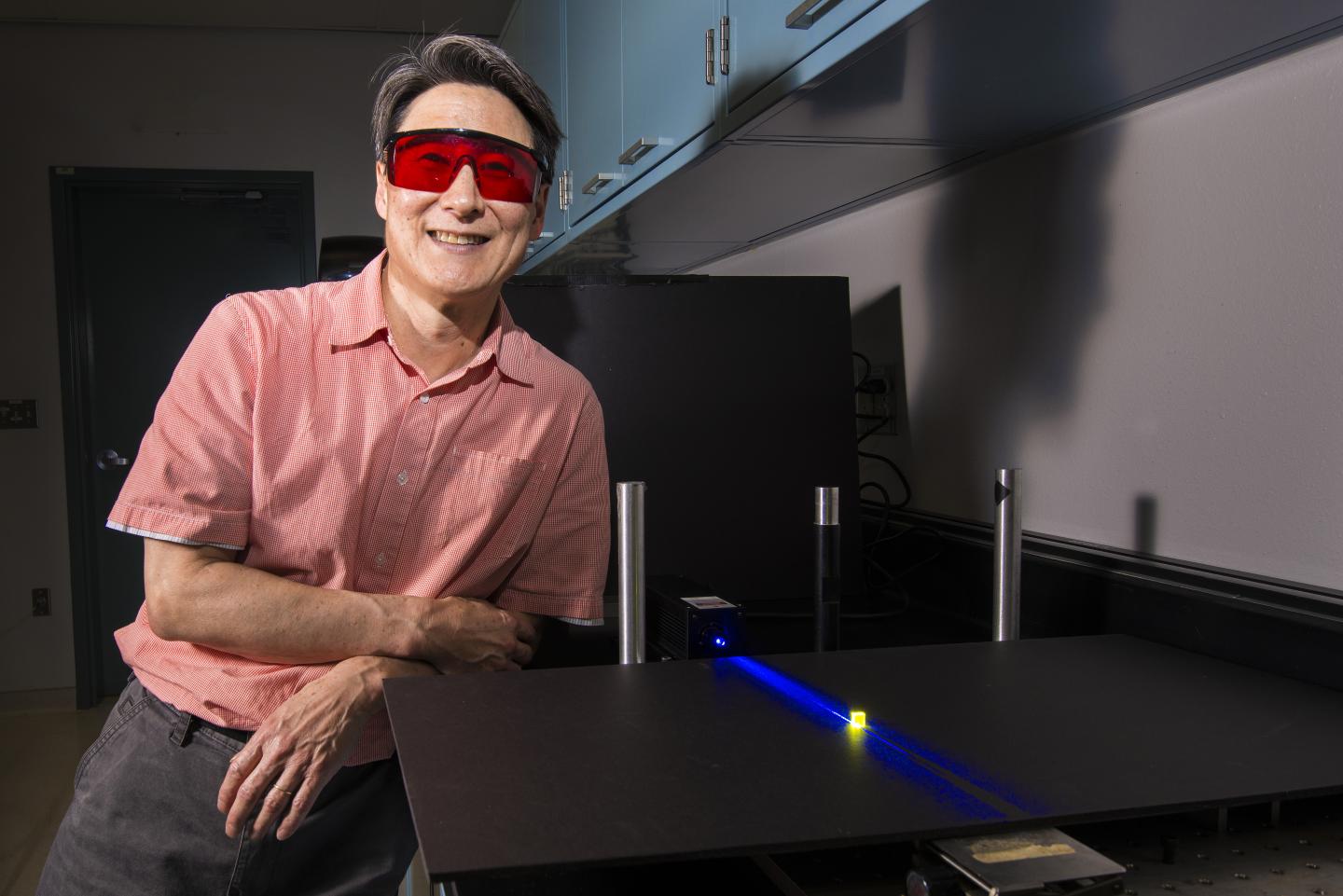
Credit: Courtesy Sandia National Laboratories, photographer Randy Montoya
ALBUQUERQUE, N.M. — People who believe light-emitting diodes, or LEDS, are just an efficient upgrade to the ordinary electric light bulb are stuck in their thinking, suggest Sandia National Laboratories researcher Jeff Tsao and colleagues from other institutions in a Nature “Perspectives” article published in late November.
“LED lighting is only in its infancy,” the authors write. “We now stand at the threshold of what might be called engineered light.”
Light intentionally controlled in time, space and spectral content can reward not just human optics with better lighting but also can help regulate human health and productivity by eliciting various hormonal responses.
Moreover, with plants, the authors write, tailored LED wavelengths and intensities can efficiently stimulate their growth, alter their shapes and increase their nutritional value, opening a new world of scientific and technological possibilities for indoor farming.
“That’s not to ignore the integration of LEDs with the internet of things,” Tsao said, “which is already happening with LED integration with electronics, sensors and communications.” The so-called internet of things refers to electronic circuits that can communicate with each other while embedded in a variety of everyday devices.
In short, the inevitable broadening of LED usage could add value to society far greater than the energy saved in lighting homes and buildings, the authors write.
###
The research was supported by the Department of Energy’s Solid State Lighting Program.
Sandia National Laboratories is a multimission laboratory operated by National Technology and Engineering Solutions of Sandia LLC, a wholly owned subsidiary of Honeywell International Inc., for the U.S. Department of Energy’s National Nuclear Security Administration. Sandia Labs has major research and development responsibilities in nuclear deterrence, global security, defense, energy technologies and economic competitiveness, with main facilities in Albuquerque, New Mexico, and Livermore, California.
Media Contact
neal singer
[email protected]
505-845-7078




